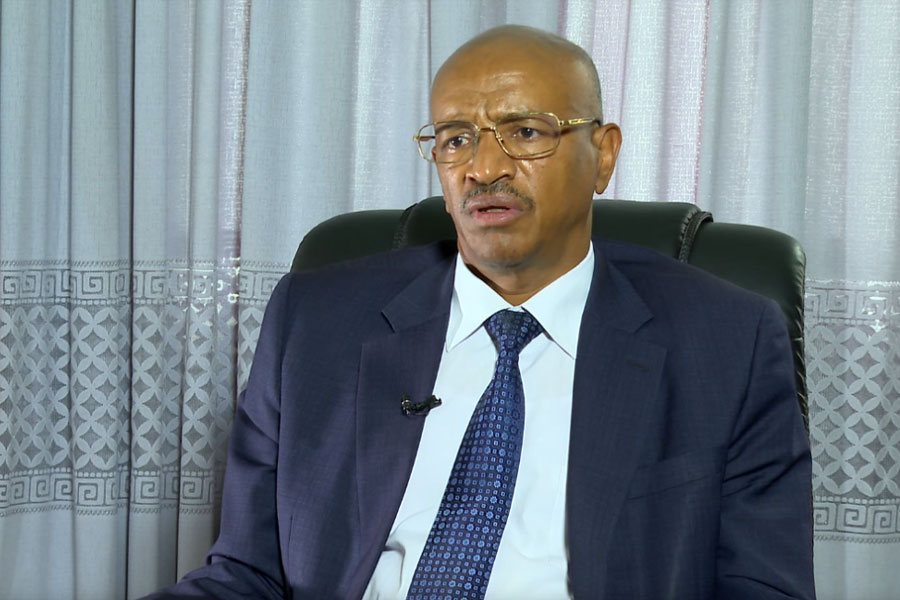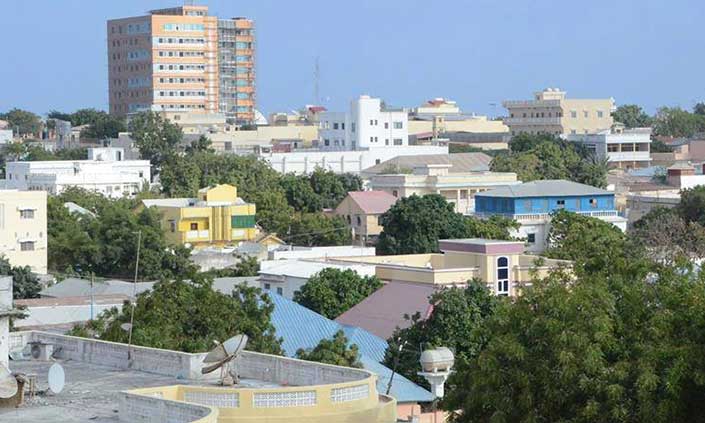
Life Matters | May 27,2023
May 18 , 2019
By Abdi Zenebe (PhD)
The last three successive political transitions in Ethiopia witnessed, in relative terms, a stable political transfer of power at the last phase of the struggle.
Take the fall of the Imperial regime. Haile Selassie with his Imperial Guard was unable to engage the low-ranking military officers who took power. This kept the political structure intact, to a degree, and functional. It underwent a less disruptive transition and maintained the bureaucracy for awhile.
Similarly, although the Derguewas defeated militarily, Mengistu's decision to escape at the last minute brought a relative, but significant, stability to the centre of power. His contemporary, Siad Barre of Somalia, refused to concede defeat, which is one of the reasons for the continued mayhem in Somalia. Siad Barre’s decision not to abandon Villa Mogadishu, official residential palace of Somali presidents, and the heavy fighting that ensued created a heavy toll on human life has thwarted what would have been a relatively stable political transition.
In today's politics, the dominant politico-military groups’ reception of the proponents of the ongoing change is a commendable and been courageous decision that has not given much attention. Understanding this process is crucial for several reasons.
The process of healing a country from a protracted state of political decay encompasses a broader political framework that engulfs every corner and view in the country. Hence, the retreat should not be portrayed in the sense of realpolitik that sees the world only in duality - winners and losers. Such a notion is not only destructive but also marginalising and has a potential to create discord among the people of the country.
The retreat is the outcome of the ultimate decision by political forces inside a consitituent party of the EPRDF that has long been believed to be the most dominant, the TPLF. There is no denial here about the presence of immense pressure. However, a political decision was made to facilitate a relatively smooth transition, which indicates the presence of persons of reason that require sustainable assistance. The relatively, bloodless and definitely less radical transition would not have been likely otherwise.
The narrative that reminds us that there are political actors within the TPLF that stand with the forces of change will pave the way to build bridges between mid- and low-level political officials across the EPRDF political spectrum. The actors that control the extensive and exhaustive bureaucracy in Ethiopia have a bigger and historical responsibility for the future wellbeing of the country.
The relatively peaceful transition of power provides a lesson that excessive stubbornness will lead to a security breakdown that invites external actors with vested interests. One of the biggest worries we have today concerning Sudan is that, unless the Sudanese are able to come to a compromise, their capacity to decide their own future grows dimmer. It would be a repeat of what occurred in Syria, Yemen and Libya. It is the external powers that have the upper hand on the political and security crisis unfolding.
Similarly, the temptation by regional and world powers to have an influence on Ethiopia is understandable, at least given the nation’s geographical significance. A guaranteed way of resisting external pressure is the capacity to reach a compromise internally. We must learn to refrain from a mob mentality and learn to adhere to the law of the land. A house is much more likely to fall when it decays from the inside.
For the vast majority of bewildered TPLF supporters, such recognition is a reminder of the authentic zeitgeist of the political transition in Ethiopia. This transition is not about creating winners or losers. It is about a collective search for the optimal structural and systemic means toward peaceful co-existence and socio-economic betterment.
More importantly, the continued process of transition and impetus for its successes widen the appetite to invite the active involvement of all concerned bodies. The active, constructive involvement and contribution of citizens from all corners will enable us to prepare the perfect dress for Ethiopia that engulfs and embellishes it.
PUBLISHED ON
May 18,2019 [ VOL
20 , NO
994]


Life Matters | May 27,2023

Viewpoints | Jul 29,2023

Fineline | May 04,2019

Fortune News | Sep 10,2023

Viewpoints | Mar 23,2019

Verbatim | May 10,2025

Sunday with Eden | Dec 31,2022

Fortune News | Jul 27,2019

Verbatim | Oct 10,2020

Money Market Watch | Apr 13,2025

Photo Gallery | 171943 Views | May 06,2019

Photo Gallery | 162177 Views | Apr 26,2019

Photo Gallery | 151942 Views | Oct 06,2021

My Opinion | 136330 Views | Aug 14,2021





Dec 22 , 2024 . By TIZITA SHEWAFERAW
Charged with transforming colossal state-owned enterprises into modern and competitiv...

Aug 18 , 2024 . By AKSAH ITALO
Although predictable Yonas Zerihun's job in the ride-hailing service is not immune to...

Jul 28 , 2024 . By TIZITA SHEWAFERAW
Unhabitual, perhaps too many, Samuel Gebreyohannes, 38, used to occasionally enjoy a couple of beers at breakfast. However, he recently swit...

Jul 13 , 2024 . By AKSAH ITALO
Investors who rely on tractors, trucks, and field vehicles for commuting, transporting commodities, and f...

Oct 4 , 2025
Eyob Tekalegn (PhD) had been in the Governor's chair for only weeks when, on Septembe...

Sep 27 , 2025
Four years into an experiment with “shock therapy” in education, the national moo...

Sep 20 , 2025
Getachew Reda's return to the national stage was always going to stir attention. Once...

Sep 13 , 2025
At its launch in Nairobi two years ago, the Africa Climate Summit was billed as the f...

Oct 5 , 2025 . By NAHOM AYELE
In Meqelle, a name long associated with industrial grit and regional pride is undergo...

Oct 5 , 2025 . By BEZAWIT HULUAGER
The federal government is set to roll out a new "motor vehicle circulation tax" in th...

Oct 5 , 2025 . By NAHOM AYELE
The Bank of Abyssinia is wrestling with the loss of a prime plot of land once leased...

Oct 5 , 2025 . By BEZAWIT HULUAGER
The Customs Commission has introduced new tariffs on a wide range of imported goods i...